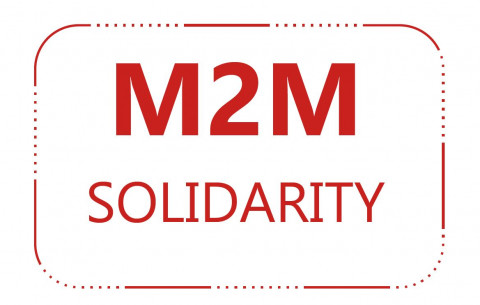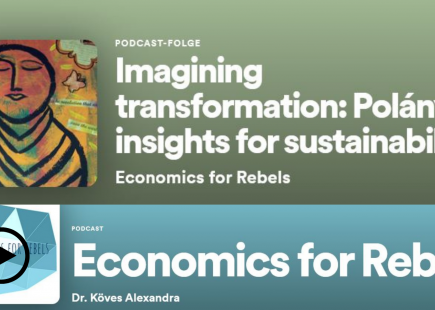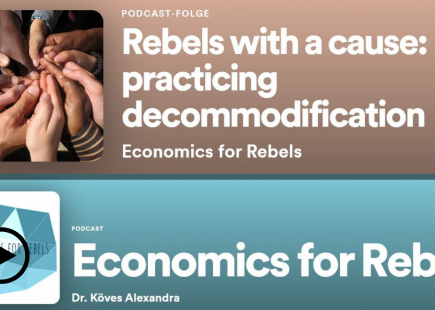M2M Solidarity Building a municipal-to-municipal culture of European solidarity
Regions
Is there a culture of European solidarity? Yes, if you look at the local level. Many local communities in Europe have transformed their context by experimenting with new forms of democracy. The M2M Solidarity project creates peer-learning exchanges between these collectives, and seeks to contribute to a revival of European solidarity.

Table of contents
-
- Background
- Interview with Sol Trumbo Vila
- Participants
- Results:
- Podcasts: Cloughjordan and Budapest
- Infographic: Litoměřice, Berlin and Ordizia
- PhotoEssay: Cloughjordan Ecovillage and Budapest
- PhotoEssay: Komotini and Barcelona
- Videos: Cádiz and Kronenberg
- Videos: Amsterdam and Grenoble
A pan-European Culture of Solidarity must be rooted in values and practices that are also shared at local level. This project will demonstrate that Europeans of all kinds share fundamental challenges, such as access to water, housing, food and clean energy. Local initiatives based on solidarity and cooperation are delivering solutions where national and European level policies are falling short. The results provided by this project in the form of locally rooted narratives of solidarity translated to the European space will contribute to a revival of European solidarity.
Under the M2M Solidarity project, eleven solidarity-based initiatives from eight different European countries work together in pairs and one trio throughout 2021 to create different cultural products. These local transformative initiatives have succeeded in assuring access to basic rights like water, housing, food and clean energy in their communities.
The resulting five products will be re-imagined as a collection of inspiring experiences that will communicate what a culture of solidarity means in Europe, as seen through the lens of the local. The products will be disseminated by the participants groups to their local constituencies and shared in European spaces of debate. The relationships fostered through the project will provide a basis for collaboration that will facilitate future collaborations at the European level.
The project intends to demonstrate that solidarity works to assure everyone’s basic needs are met, regardless of their status as rights-holding citizens or undocumented migrants or refugees. In so doing, it will build a compelling narrative and contribute to a pan-European movement that pushes back against austerity, exclusion and nationalism.
In the European Cultural Foundation's series of interviews with Culture of Solidarity Fund grantees, welcome to our conversation with Sol Trumbo Vila of Transnational Institute, an international research and advocacy institute committed to building a just, democratic and sustainable planet.
Who are you?
My name is Sol Trumbo Vila, I am originally from Valencia, Spain, but I am living in the Netherlands for eleven years, the last nine working in Amsterdam at the Transnational Institute. My passion is to design communication frames and platforms to expose unaccountable power structures and to advance democratic solutions to our global problems, particularly unequal access to basic human rights and the destruction of ecosystems. I have the privilege to pursue that passion through my work at the Transnational Institute.
What made you think of the project?
The last four years I have coordinated the Transformative Cities Initiative, a platform to navigate and strengthen the constellations of local initiatives building alternatives to the traditional market and state based models. Through this work we have worked with dozens of inspiring and transformative local initiatives from all over the world that are addressing global problems like access to water, housing, food and energy.
| Amsterdam City Rights, Amsterdam, Netherlands
Amsterdam City Rights is a team of people with and without the right documents. Since the start of Covid-19, they focus on signalling, meeting on the streets and giving information.Their website provides information about the rights of undocumented people and where they can go for assistance. People without a valid residence permit can and should be helped. They are citizens of Amsterdam and contribute to our city life, yet many are prevented from meeting their basic needs because of their lack of status. The city should take positive action to care for all of its citizens, whether or not they have papers, and have consideration and understanding for the vulnerable position in which many undocumented migrants live.
Read more: https://www.amsterdamcityrights.org/
| Association of Energy Managers of Towns and municipalities (SEMMO), Litoměřice, Czech Republic
The Association of Energy Managers of Towns and municipalities (SEMMO) is an association of local and regional authorities in the Czech Republic interested in implementing energy-saving measures, renewable energy sources or related solutions in transport. SEMMO aims to create an effective platform to exchange information on sustainable energy and transport, to educate towns and municipalities at seminars and conferences, and to involve cities and municipalities in innovative projects and activities.
| Barcelona Energía, Barcelona, Spain
Barcelona Energía is a metropolitan electricity company. It works to promote a new, more sustainable energy model, based on efficiency, the generation of renewable energies and citizen participation. The change in the energy model is a far-reaching strategy that involves recovering energy sovereignty by promoting the public and citizen production of energy, the democratization of access to it and its management as a public service. A change that allows the reduction of energy consumption, the rational use of energy and the guarantee of supply in compliance, as well as the increase in renewable generation and the consequent reduction in greenhouse gases.
Read more: https://transformativecities.org/atlas/energy2/
| Berliner Wassertisch, Berlin, Germany
In 2011, the Berlin Water Table made history, winning not only the first ever Berlin referendum but also writing a law to disclose the secret partial privatization agreements at the BWB. With 666,235 votes the political pressure was deployed to get back the shares in the Berliner Wasserbetriebe sold by the Berlin Senate to private companies in 1999, thus initiating the remunicipalisation that was carried out in 2013. The news not only thrilled the Berlin population but also encouraged water activists in many other cities to take their water utilities back into public hands. By now, the Berlin Water Table has published a “Berlin Water Charta” and founded the “Berlin Water Council” as a participative instrument of direct democracy.
Read more: https://transformativecities.org/atlas/atlas-18/
| Cádiz Table for the Energy Transition, Cádiz, Spain
The Cádiz Table for the Energy Transition is a group of citizens concerned to promote the energy transition towards renewable energy and sustainability in Cádiz. This space prepares proposals that are transferred to the city council and to the semi-public energy company Eléctrica de Cádiz for their realization. The four City of Cádiz priorities for the energy transition are savings, efficiency and renewables in public buildings; the fight against energy poverty; the promotion of a democratic energy transition; and the promotion of energy-related job creation.
Read more: https://municipalpower.org/articles/a-democratic-transition-to-renewable-energy-in-cadiz/
| Cargonomia, Budapest, Hungary
Cargonomia is a cargobicycle logistics center and local organic food distribution point in Budapest, Hungary. They are a self-organized collective whose work focuses on DIY sustainability activism, increasing access to cargobicycles, organic agriculture outreach, self-organized urban gardening and Degrowth education. Cargonomia is a diverse team living in Hungary that regularly collaborates with many international partners. and
Read more: https://cargonomia.hu/?lang=en
| Cloughjordan Ecovillage, Cloughjordan, Ireland
Cloughjordan Ecovillage is a community of around 90 adults and 35 children, living in 55 homes on 67 acres (22 hectares) in the Irish midlands. Its aim is to model the low-carbon transition and it does this through its ecological buildings, its carbon-natural district heating system and its community farm. Cloughjordan has Ireland’s lowest ecological footprint. It is an educational project pioneering place-based education for sustainability for groups from Ireland and abroad.
Read more: http://www.thevillage.ie/
| GoiEner Cooperative, Ordizia, Spain
GoiEner is a cooperative which is concerned with the generation and consumption of renewable energy, and with the objective of reclaiming energy sovereignty. It wants citizens to regain control over this basic need and to make them aware of its importance, thus promoting a responsible and sustainable consumption of energy. Its aim is to help people whose energy needs are not being met and who are excluded by the big energy corporations. The cooperative – set up in 2012 – is now a successful non-profit energy supplier
Read more: https://transformativecities.org/atlas/atlas-034/
| Komotini Municipality, Komotini, Greece
Komotini Municipality as the main local authority in the area in a remote part of Greece acts as a hub that facilitates and coordinates a solidarity initiative, especially during times of need. Komotini organized home deliveries of goods for people in need (especially elderly, disabled and families in poor financial state), expanding its reach and providing also counselling support. Remote health monitoring equipment was given to people with chronic life-threatening ailments. Electronic equipment and internet access was given to underprivileged kids in order to attend virtual classes. Also, Komotini helped the local Roma population by providing necessary equipment and goods. Furthermore, Komotini Municipality also provided to the local hospital medical equipment (ICU beds and ventilators, as well as molecular testing equipment for tracing COVID-19).
Read more: https://municipalpower.org/articles/komotinis-plans-for-a-climate-friendly-future/
| Next Planning/Atelier Popular d’Urbanisme, Grenoble, France
Next Planning aims to experiment, research, capitalize and disseminate participatory urban planning methods to promote the commons, the right to the city and a new municipalism that strengthens the ecological transition of the territories. The association contributes to the emergence, animation and structuring of the Popular Urban Planning Workshop (APU) in a spirit of challenge and co-construction of public policies.
Read more: https://transformativecities.org/atlas/housing4/
| Energie Kronenberg, Kronenberg, The Netherlands
Energie Kronenberg is a citizens collective in Limburg (The Netherlands) working together with local residents, companies, organisations and the municipality of Kronenberg to create a more sustainable society. In 2014 they set a very ambitious goal: an energy neutral Kronenberg by 2030, having all households of the city going off gas. This collective currently consists of 15 members and volunteers.
Read more: http://www.energiekronenberg.nl


Economics for Rebels podcast with Cloughjordan Ecovillage and Cargonomia from Budapest
Episode 1: Ecological economics is about finding ways to transform our societies to move onto an environmentally and socially sustainable path. Many of the criticisms ecological economists express and the solutions they advocate can be rooted back to Karl Polanyi whose book The Great Transformation provided a well-argued case against mainstream economics already in the 1940s.
In her podcast Economics for Rebels, Dr. Alexandra Köves meets Pedar Kirby from Cloughjordan Ecovillage and Logan Strenchock from Cargonomia, Budapest, to talk about using Polányi’s insights for a solidaric sustainability transition.
Listen to it here.
Episode 2: The relevance of Karl Polányi’s insights on social and economic transformation to ecological transformations has long been established. At the core of Polányi’s work were the processes that drive the relationship between state and market, namely commodification and decommodification, particularly the three fictitious commodities of land, labour and money. Understanding decommodification in the heart of the ecological crisis is of vital importance as no ecological sustainability can be achieved when commodifying nature, and no social sustainability is possible when commodifying humans. Peadar Kirby and Logan Strenchock talk with host Dr. Alexandra Köves about decommodification, not just in theory, but also in practice.
Listen to it here.